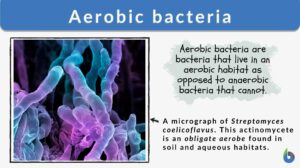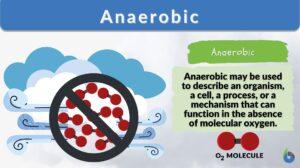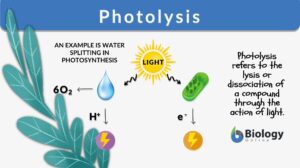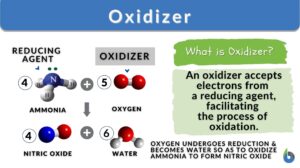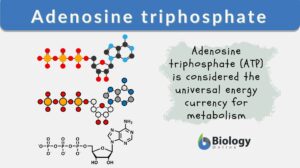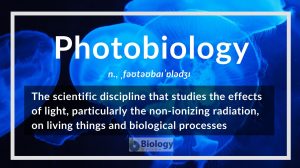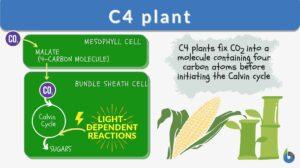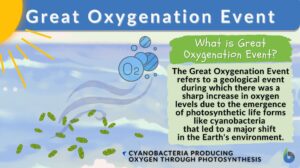Search Results for: electron acceptor
Terminal electron acceptor
Definition noun A compound that receives or accepts an electron during oxidation of carbon source, e.g. during cellular... Read More
Light-dependent reaction
Many organisms, such as green plants, convert light energy into chemical energy through the mechanism of photosynthesis. In... Read More
Fermentation
Fermentation Definition What is fermentation? Fermentation is the breaking down of sugar molecules into simpler compounds... Read More
Anaerobic respiration
Anaerobic Respiration Definition What is anaerobic respiration? Anaerobic (cellular) respiration is a respiratory process... Read More
Cellular respiration
Cellular Respiration Definition What is cellular respiration in simple terms? Cellular respiration can be defined simply as... Read More
Plant Metabolism
Introduction Plants are responsible for incredible feats of molecular transformation. The processes are always being... Read More
Electron acceptor
Definition noun A molecule that receives or accepts electrons from another molecule during a redox reaction. Supplement An... Read More
Facultative anaerobe
Facultative Anaerobe Definition What does facultative anaerobe mean? Facultative organisms are the most adaptable... Read More
Chlorophyll
Why are most plants green? Have you ever had the same question? Perhaps, you’ve been told that the plants are green... Read More
Redox reaction
Redox Reaction Definition What are redox reactions? This is a common term in chemistry and biology. In chemistry, a redox... Read More
Aerobic bacteria
Aerobic Bacteria Definition What does aerobic mean in biology? As the name suggests, 'aerobe' in biology means organisms... Read More
Chemiosmosis
Chemiosmosis Definition What is chemiosmosis? In biology, chemiosmosis refers to the process of moving ions (e.g. protons)... Read More
Obligate aerobe
Before we define obligate aerobes, let us first understand and define aerobic organisms. Aerobic organisms are those that... Read More
Photosynthesis
Photosynthesis is a physio-chemical process carried out by photo-auto-lithotrophs by converting light energy into chemical... Read More
Ionic bond
Definition noun plural: ionic bonds A type of chemical bond in which atoms, ions, or molecules are held together by... Read More
Oxidative phosphorylation
Definition noun A metabolic pathway that generates ATP from ADP through phosphorylation that derives the energy from the... Read More
Photolysis
Photolysis Definition We define photolysis as a chemical process in which chemical compounds or molecules are split into... Read More
Aerobic process
Definition noun, plural: aerobic processes A process that occurs and requires the presence of oxygen or air Supplement An... Read More
Carbohydrate
Carbohydrate Definition A biomolecule refers to any molecule that is produced by living organisms. As such, most of them... Read More
Oxidoreductase
Definition noun, plural: oxidoreductase (biochemistry) An enzyme that catalyzes the transfer of electrons from an electron... Read More
Adenosine triphosphate
Adenosine Triphosphate Definition noun plural: adenosine triphosphates (biochemistry) An organic compound that is... Read More
photobiology
Photobiology Definition Photobiology, the biology of light, is a subdiscipline in biology. It focuses on the effects of... Read More
Photosystem I
Definition noun The photosystem that makes use of light to transfer electron particualrly from plastocyanin to ferredoxin,... Read More
Accessory pigment
Definition noun, plural: accessory pigments A non-chlorophyll pigment inside the chloroplast of photosynthetic organisms,... Read More
Light reactions
Definition noun The series of biochemical reactions in photosynthesis that require light energy that is captured by... Read More
Great Oxygenation Event
Great Oxygenation Event Definition The Great Oxygenation Event is defined as the surge of dioxygen (O2) levels in the... Read More
Animal cell
An animal cell is the fundamental functional unit of life of animals. It is also the basic unit of reproduction. Animal... Read More
Aerobic respiration
Definition noun (1) A form of cellular respiration that requires oxygen in order to generate energy. (2) The process of... Read More
Obligate anaerobe
Definition noun An anaerobe that does not require oxygen and lives only in anaerobic environment. Supplement Exposure to... Read More










